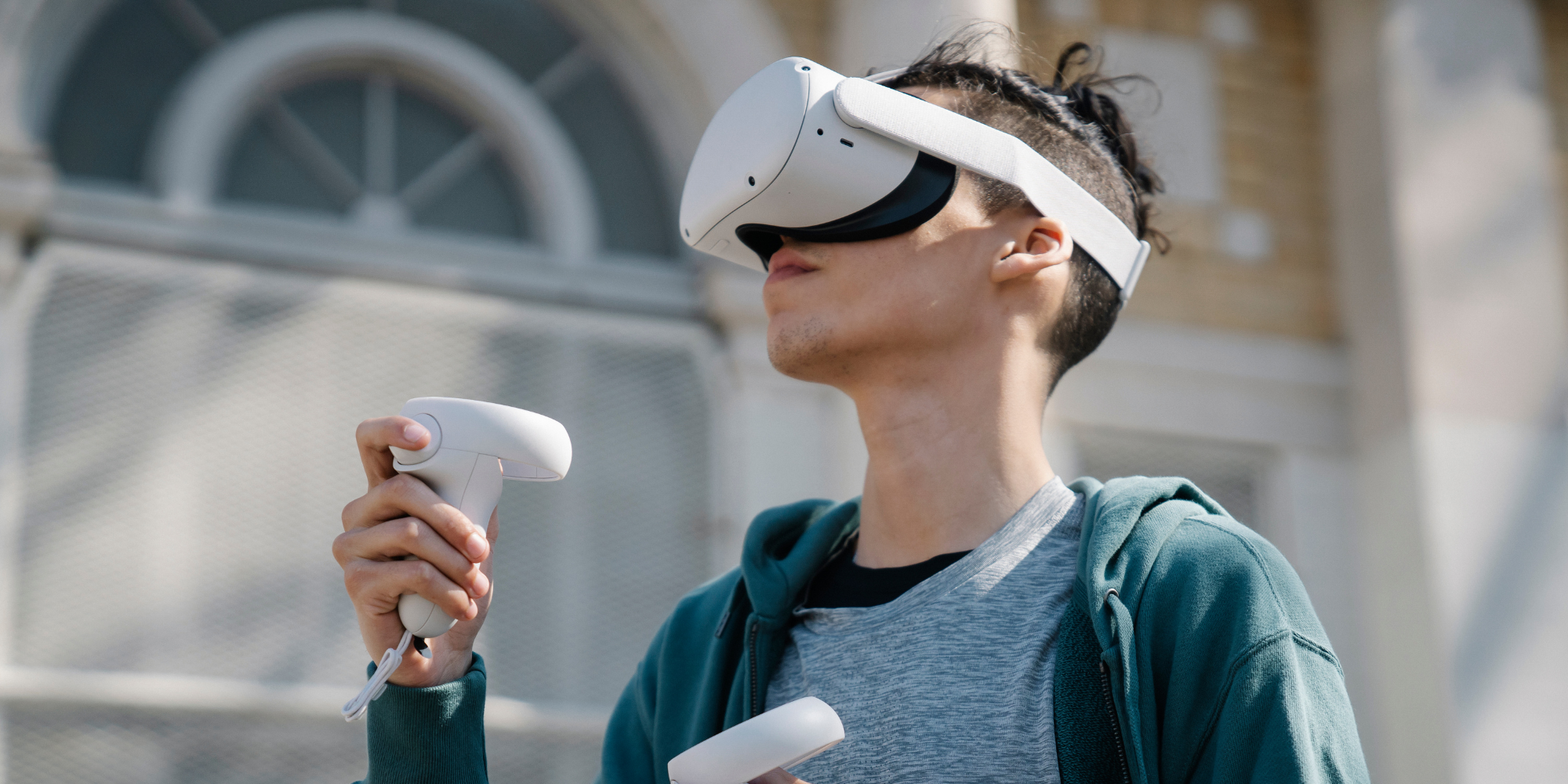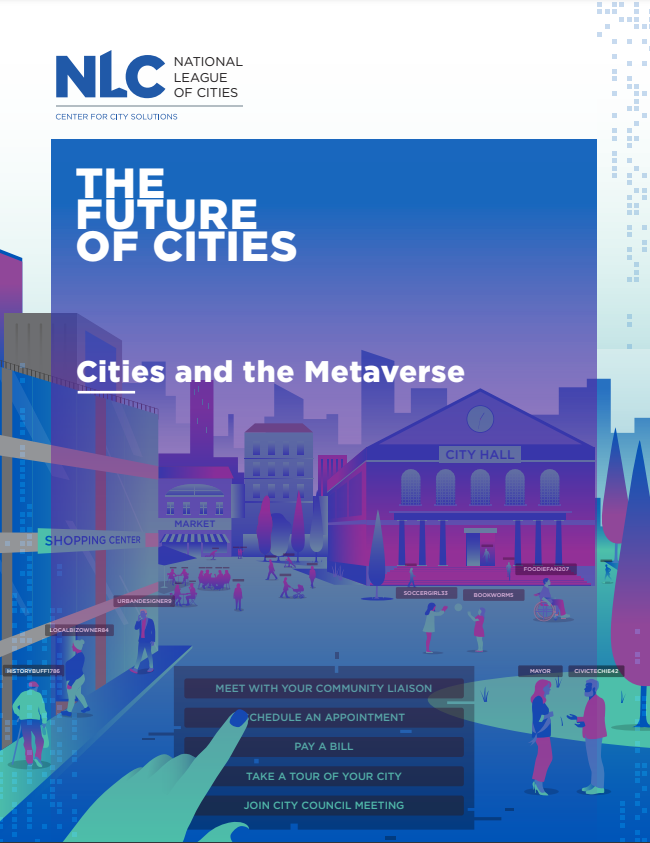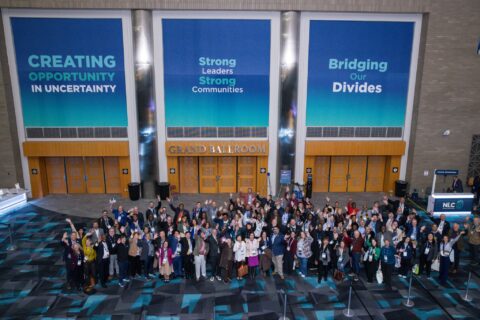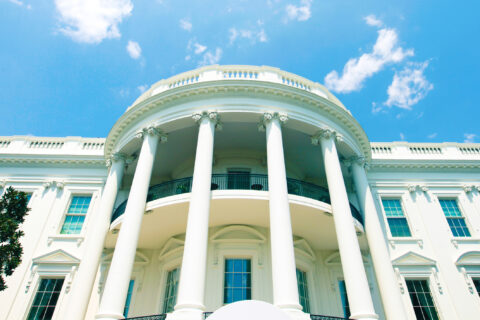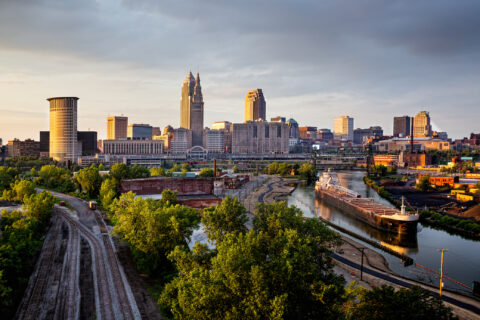Virtual communication technology is constantly evolving to be more seamless and lifelike. Platforms like Zoom, Facetime and Google chat became essential during the COVID-19 pandemic, but these technologies fall short in replicating the experience of real-life interaction.
The metaverse offers an answer to the imperfect experience of virtual communication. While technology companies have brought the metaverse to prominence, it doesn’t have an agreed-upon definition and can be an illusive concept. Generally speaking, the metaverse is the next evolution of the internet that will further integrate physical and digital experiences. For some, it’s an online space that digitally recreates the real world. For others, it is a shift in how people interact with their world, using technologies like 3D computing, augmented reality, virtual reality and blockchain to form new immersive virtual world experiences where digital information can be overlaid on our physical world. It’s critical that cities are proactive in considering how the metaverse will impact them. We have seen that new technology can provide innovative solutions to better cities when local leaders plan for it, but can also be detrimental to cities when it arrives without foresight.
When used well, new technologies can enhance urban life. The integration of GPS with public transit means that riders now take for granted the ability to perfectly predict the moment their bus will arrive, and access to broadband has enabled residents to reliably connect to their jobs, schools or loved ones from their homes. As city leaders plan for the future, they will need to consider how new technologies like the metaverse fit in and how they can serve cities.
The National League of Cities’ new resource, Cities and the Metaverse, helps local leaders get started in figuring that out. The brief provides an overview of what the metaverse is, its applications in cities today and how this technology might impact municipal governments in the future.
Technologies like blockchain and the Internet of Things (IoT) are foundational to the metaverse, and city governments across the country are already using these technologies in innovative ways to streamline city processes, attract tourism and manage key resources. Orlando, Boston and Las Vegas have already created virtual replicas of their cities in the form of digital twins, online copies of their cities built to scale that allow local governments to play out hypothetical scenarios to anticipate specific impacts of new buildings, street changes or other land use decisions. Other cities, like Austin, Miami and Chandler, AZ, are investing in the blockchain for a range of uses, from securely storing medical records of unhoused residents to enabling residents to vote in local elections from their mobile devices. Much of the metaverse will rely on the blockchain to facilitate smooth and transparent exchanges of information, and these cities are on the cutting edge of envisioning how the metaverse will work for them.
Other cities are investing in much more immersive versions of the metaverse. In 2021, the Seoul Metropolitan Government announced its intention to invest $3.3 million to become the first city to fully enter the metaverse. Seoul is already hosting cultural events in the metaverse to attract global tourism and will soon launch a virtual city hall, where residents can have lifelike interactions with city officials and access key services from their homes. Santa Monica, CA has also entered the metaverse by partnering with a metaverse social app to offer visitors a virtual experience where users can collect tokens and unlock experiences in the app as they navigate the city’s commercial district. The partnership allows visitors to explore this exciting new technology and boosts Santa Monica’s economy by drawing users to local businesses.
These examples are just the beginning of a broader trend. Because the metaverse is still being defined, there are endless possibilities as to how it may benefit cities. In the years to come, the metaverse may be used to host lifelike, virtual, public meetings and engage residents from their homes. It may also be used to monitor energy use in real time to enable cities to manage resources sustainably and efficiently.
As the technology evolves, city leaders have an exciting opportunity to play a part in how the metaverse comes to be. Staying informed, proactive and curious about how to engage with it is a critical first step to determining what the future of municipal government might look like with this new technology.
